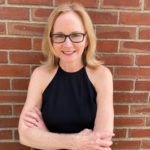 September 13, 2016 – The Monterey Bay Aquarium announced yesterday that it is joining forces with USAID’s Oceans and Fisheries Partnership to improve the traceability of seafood coming into the United States. Also on Monday, the aquarium disclosed that by the end of the year it will release a new tool aimed at helping businesses identify whether seafood they want to import may have been caught by slaves or others whose human rights were violated.
September 13, 2016 – The Monterey Bay Aquarium announced yesterday that it is joining forces with USAID’s Oceans and Fisheries Partnership to improve the traceability of seafood coming into the United States. Also on Monday, the aquarium disclosed that by the end of the year it will release a new tool aimed at helping businesses identify whether seafood they want to import may have been caught by slaves or others whose human rights were violated.
The aquarium made the announcements at its Sustainable Food Institute, an annual conference for journalists, chefs, institutional food buyers and other influencers committed to protecting the planet by promoting sustainable food choices.
The always excellent event was held on September 12 and 13 at the Monterey Plaza Hotel & Spa and offered a remarkable lineup of speakers including researchers, activists, reporters and business people from around the world.
Aside from seafood traceability and human rights, the panels took up other topics that the aquarium sees as key to our impact on the oceans and the rest of the planet, including how to make sustainable food a “pre-competitive” issue for all food purveyors, rather than a differentiator among purveyors; routes to more sustainable eating through plant-based foods, aquaculture, indigenous foods and the vegan diet; marine plastics; the ongoing drought; and, what aquarium executive director Julie Packard calls the “the environmental issue of our time,” climate change.

The goal of the new partnership with USAID which Packard announced Monday is to digitally document the origin of fish coming particularly from the Asia-Pacific region from “boat to plate,” and to build local partnerships that will promote adherence to the highest levels of sustainability as well as applicable labor laws.
“This is sort of the next frontier to figure out,” Packard said of traceability. “We know how to do it,” she added, saying that the challenge is to spread the necessary techniques to make it happen.
The new Human Rights Risk Assessment tool that Packard announced will go live by the end of the year and is intended for use by businesses like restaurants, institutions and food service companies.
The tool will offer four levels of risk—“low,” “medium,” “high” and “critical”—to alert importers that human rights abuses may be occurring in the fisheries of a particular county.
In the area of climate change, the aquarium is working on a greenhouse gas emission tool that will allow users to assess the carbon footprint of different fishing and farming practices.
The need for the human rights tool in particular tool became shockingly evident late last year, when the Associated Press published a series of stories documenting massive slavery of fishermen in Southeast Asian fisheries. The series helped win the freedom of 2,900 slaves and earned the reporting team a Pulitzer Prize for public service.

But it’s all the more relevant to Americans today, as the AP reported last week that that due to a loophole in U.S. law, foreign undocumented fishermen are being held for months or years in American ships off Hawaii without the protections afforded under U.S. labor law. http://www.ap.org/explore/seafood-from-slaves/hawaiian-seafood-caught-foreign-crews-confined-boats.html
Speaking at the aquarium’s conference via Skype from her post in Asia on Monday, one of the authors of both the Pulitzer-Winning series and the article on slavery off of Hawaii, Marjorie Mason, described the fleet of about 140 boats holding the fishermen to be American owned, American captained and American flagged, and yet the team found that in some cases the foreign fishermen were living in squalid conditions with no more than plastic bags or buckets for toilets, forced to work for as little as 70 cents an hour and not allowed to leave their ships. Fish caught by these ships, according to the AP story, is sold at big American chains like Whole Foods and Costco.
All this of course supports the idea that you should know your fishermen and buy locally when possible. Yet when it’s necessary to purchase fish from elsewhere, the need to know its provenance has become all the more obvious, and luckily the aquarium is stepping up its efforts to help.
About the author
SARAH WOOD—founding editor and publisher of Edible Monterey Bay—has had a life-long passion for food, cooking, people and our planet.
She planted her first organic garden and cared for her first chicken when she was in elementary school in a farming region of Upstate New York.
Wood spent the early part of her career based in Ottawa, Canada, working in international development and international education. After considering culinary school, she opted to pursue her loves for writing, learning about the world and helping make it a better place by obtaining a fellowship and an MA in Journalism from New York University.
While working for a daily newspaper in New Jersey, she wrote stories that helped farmers fend off development and won a state-wide public service award from the New Jersey Press Association for an investigative series of articles about a slumlord who had hoodwinked ratings agencies and investment banks into propping him up with some early commercial mortgage securitizations. The series led Wood to spend several years in financial journalism, most recently, as editor-in-chief of the leading magazine covering the U.S. hedge-fund industry.
Wood now lives with her family in Washington, DC, where she is a freelance writer and manages communications for Samaritan Ministry, an antipoverty and antiracist nonprofit that provides struggling Greater Washington residents with highly personalized and compassionate life counseling and coaching.
- Sarah Woodhttps://www.ediblemontereybay.com/author/swood/
- Sarah Woodhttps://www.ediblemontereybay.com/author/swood/
- Sarah Woodhttps://www.ediblemontereybay.com/author/swood/
- Sarah Woodhttps://www.ediblemontereybay.com/author/swood/



